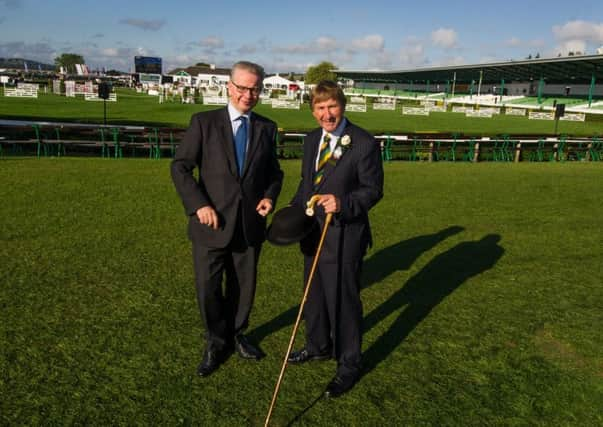YP Comment: Rural Britain '“ why it matters. Time to make countryside count


He’s reassured farmers that existing subsidy arrangements will remain in place for the duration of this Parliament as Britain leaves the EU and his enthusiasm – self-evident at last month’s Great Yorkshire Show – has brought new focus to agriculture, the rural economy and the opportunities that do exist.
Yet, while there’s support for Mr Gove’s desire to reform the subsidy system so that it does not automatically reward the largest landowners or those who pay ‘lip service’ to their wider environmental obligations, he does need to remember that farmers, however hardworking, can only do so much. They can’t be expected to produce in sufficient quantity; manage natural habitats that make the countryside so alluring to visitors and use their land to reduce the risk of flooding on their own – the Government will, at some point, have to make more resources available to ensure these needs are met.
Advertisement
Hide AdAdvertisement
Hide AdHelpfully, from Mr Gove’s point of view, the widely-respected Country Land and Business Association’s new report, the latest part of its Countryside Matters campaign, makes a persuasive case and points to significant public support for greater investment in farmland and the natural environment. If Brexit is to work for Britain, agriculture must not become an after-thought. It matters. Farmers recognise this. The CLA does. And so, too, does Mr Gove who – in less than two months – has achieved more than his predecessors managed in two wasted years. The challenge now is persuading Theresa May and Philip Hammond at a time when the Prime Minister and Chancellor rarely acknowledge the existence of rural Britain, never mind the rich harvest that could be reaped with the right policy framework.
The way forward
THE changing skyline of Leeds is indicative of the West Yorkshire city’s resurgence. A city where growth – and progress – had stalled before the last recession is now one of the most dynamic in Britain.
Yet, if the latest research by Cambridge economists and academics is accurate, this is just the beginning. They believe nearly 50,000 knowledge-based jobs could be created in the city centre between now and 2030 if key policies are in place when it comes to transport, skills and the regeneration of redundant land so there’s sufficient office space to meet the potential demand.
It’s not just Leeds where the potential prize is so great – towns and cities across Yorkshire have an abundance of sites which are ripe for redevelopment. The challenge is delivering up a joined-up economic policy so these opportunities do not go to waste at a time when town hall and combined authority leaders still struggle to see the bigger picture – the issues at stake transcend archaic local authority boundaries.
Advertisement
Hide AdAdvertisement
Hide AdMore than six months after senior business leaders wrote an open letter to The Yorkshire Post challenging local politicians to make 2017 the year of devolution, the deadlock has still not been broken. Given this, now is the time for this region’s innovators and investors to come together and form a plan which provides the necessary skills and transport infrastructure to support the ambitions of all those cutting-edge businesses that wish to invest in Yorkshire. This is far more important than narrow party political considerations which have become, frankly, tedious, tiresome and not worth the time of day.
Devotion to duty
HOW fitting that Prince Philip’s final solo engagement was to greet those intrepid members of the Royal Marines, of whom he has been Captain General since Coronation year, who had just completed a 1,664-mile trek to celebrate their inception in 1664.
As ‘three cheers’ reverberated around Buckingham Palace’s rain-sodden courtyard, they, too, stood in awe and admiration of the indefatigable nonagenarian as the Duke of Edinburgh completed his final official duty before retiring from public life.
The numbers speak for themselves – 22,219 solo engagements, 5,496 speeches, 785 patronages and 637 overseas visits in addition to providing unstinting support to the Queen since his marriage to a young Princess Elizabeth 70 years ago. It’s an exhausting workload, entirely emblematic of the Royal Family’s enduring devotion to duty, that truly humbles mere mortals. They will be impossible boots to fill.